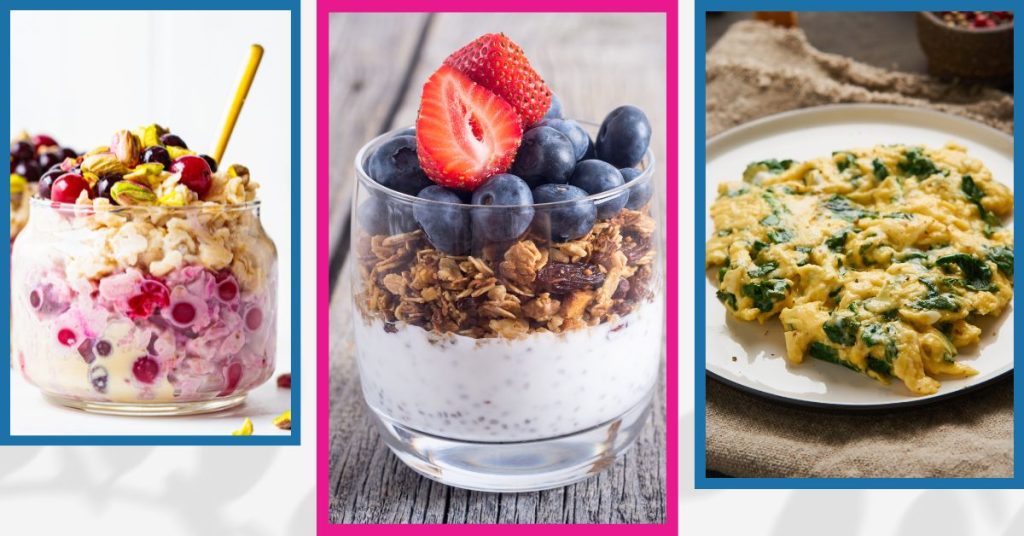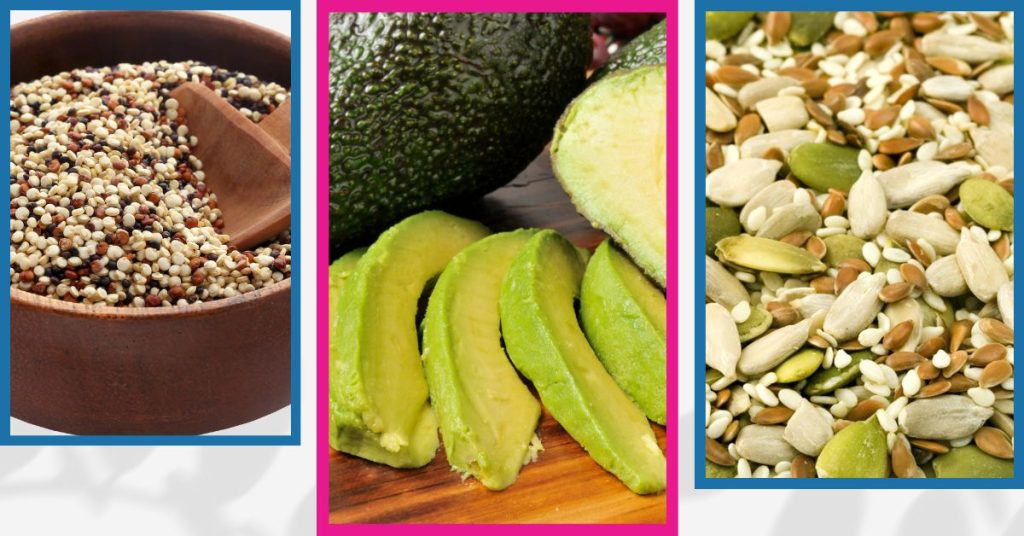Fuel Your Runs and Control Your Blood Sugar: The Best Breakfasts for Diabetics
Are you a runner over 40 living with diabetes or prediabetes? If so, you know that managing your blood sugar is key to feeling your best – on and off the track. But what does that mean for your breakfast? It’s not just about skipping the sugary cereals; it’s about starting your day with a meal that provides lasting energy and keeps those blood sugar spikes at bay.
At Midlife Runners Paradise, we believe in a balanced approach to health. We know that running is just one piece of the puzzle. Nutrition plays a huge role too, especially when it comes to diabetes management. That’s why we’re here to share our top 5 smart and simple breakfast recipes designed specifically for runners like you. We’ll show you how to fuel your body with delicious, nutritious meals that will help you stay active, energized, and in control of your blood sugar all morning long.
Why Breakfast Matters: Fueling Your Body and Stabilizing Blood Sugar
For runners with diabetes, breakfast isn’t just the most important meal of the day—it’s your secret weapon for managing blood sugar and unlocking your energy potential. Skipping breakfast or making poor choices can lead to those dreaded blood sugar spikes and crashes, leaving you feeling sluggish and struggling to maintain your pace.
But here’s the good news: a well-balanced breakfast acts like a thermostat for your blood sugar, keeping it steady throughout the morning. It kickstarts your metabolism, improves your body’s ability to use insulin effectively, and provides the sustained energy you need to power through your runs and your day. In the long run, a healthy breakfast can even reduce your risk of diabetes complications like heart disease and nerve damage.
So, think of breakfast as your pre-run warm-up—it sets the stage for success. By choosing the right foods, you’re not only fueling your body, you’re taking control of your health and laying the foundation for a great run.
5 Smart and Simple Breakfast Recipes for Diabetics
Ready to kickstart your mornings with delicious and blood-sugar-friendly meals? Here are five easy-to-make recipes packed with nutrients that will keep you energized and feeling great all day long.
Recipe 1: Overnight Oats with Berries and Nuts
(High in fiber, protein, and healthy fats)
This no-cook breakfast is perfect for busy mornings.
Ingredients:
- ½ cup rolled oats
- 1 cup unsweetened almond milk (or your milk of choice)
- 1 tablespoon chia seeds
- ½ cup mixed berries (frozen or fresh)
- 1 tablespoon chopped nuts (almonds, walnuts, pecans)
- A dash of cinnamon
Instructions:
- Combine all ingredients in a jar or container.
- Stir well and refrigerate overnight.
- Enjoy cold in the morning, topped with additional berries or nuts if desired.
Nutrition Information:
- Calories: ~300
- Carbs: ~35g
- Protein: ~10g
- Fat: ~15g
Tips:
- Swap almond milk for low-fat dairy milk or other plant-based options.
- Use a variety of nuts and seeds for different textures and flavors.
- Add a drizzle of honey or maple syrup if you prefer a sweeter taste.
Recipe 2: Greek Yogurt Parfait with Granola and Fruit
(Protein powerhouse for gut health)
This refreshing and satisfying breakfast is full of protein and probiotics.
Ingredients:
- 1 cup plain Greek yogurt
- ½ cup low-sugar granola
- ½ cup mixed berries (frozen or fresh)
- 1 tablespoon chopped nuts (optional)
Instructions:
- Layer yogurt, granola, and berries in a glass or bowl.
- Repeat layers if desired.
- Top with nuts for extra crunch.
Nutrition Information:
- Calories: ~350
- Carbs: ~30g
- Protein: ~25g
- Fat: ~10g
Tips:
- Choose a low-sugar or homemade granola to keep carbs in check.
- Swap berries for other low-glycemic fruits like chopped apple or pear.
Recipe 3: Veggie-Packed Egg Scramble
(Low-carb, high-protein power breakfast)
Get your day started with a protein-packed veggie scramble.
Ingredients:
- 2 eggs
- ½ cup chopped vegetables (onions, peppers, spinach, mushrooms)
- 1 tablespoon olive oil
- Salt and pepper to taste
Instructions:
- Heat olive oil in a pan.
- Add vegetables and cook until softened.
- Whisk eggs and season with salt and pepper.
- Pour eggs over vegetables and cook, stirring gently, until set.
Nutrition Information:
- Calories: ~250
- Carbs: ~5g
- Protein: ~15g
- Fat: ~18g
Tips:
- Add a sprinkle of cheese for extra flavor.
- Use leftover cooked vegetables for a quick and easy breakfast.
Recipe 4: Savory Quinoa Bowl with Avocado and Seeds
(Complex carbs and healthy fats)
This hearty bowl is packed with nutrients and keeps you full for hours.
Ingredients:
- ½ cup cooked quinoa
- ½ avocado, sliced
- 1 tablespoon pumpkin seeds
- 1 tablespoon sunflower seeds
- Salt and pepper to taste
Instructions:
- Combine cooked quinoa, avocado slices, and seeds in a bowl.
- Season with salt and pepper.
Nutrition Information:
- Calories: ~300
- Carbs: ~30g
- Protein: ~8g
- Fat: ~18g
Tips:
- Add a drizzle of olive oil or a squeeze of lemon for extra flavor.
- Top with a poached or fried egg for additional protein.
Recipe 5: Smoothie with Protein Powder, Greens, and Low-Sugar Fruit
(Quick and easy nutrition on the go)
This refreshing smoothie is a great option for a grab-and-go breakfast.
Ingredients:
- 1 cup unsweetened almond milk (or your milk of choice)
- 1 scoop protein powder
- 1 handful spinach or kale
- ½ cup frozen berries
- ½ banana (frozen for a thicker smoothie)
Instructions:
- Combine all ingredients in a blender.
- Blend until smooth.
Nutrition Information:
- Calories: ~250
- Carbs: ~25g
- Protein: ~20g
- Fat: ~8g
Tips:
- Use any type of protein powder you like (whey, plant-based, etc.).
- Add a tablespoon of nut butter for extra protein and healthy fats.
- Experiment with different fruits and vegetables to find your favorite flavor combination.
Extra Tips for Building the Perfect Diabetes-Friendly Breakfast
Beyond these delicious recipes, here are some extra tips to help you create a breakfast that supports your blood sugar goals and fuels your runs:
Portion Control: Even healthy foods can cause blood sugar spikes if you eat too much. Use measuring cups and spoons to keep your portions in check. A registered dietitian can help you determine the right portion sizes for your individual needs.
Read Food Labels: Don’t be fooled by misleading health claims. Pay attention to the total carbohydrate count, fiber content, and added sugar in packaged foods. Aim for options that are low in added sugar and high in fiber.
Make Smart Swaps:
- Swap sugary cereal for whole-grain cereal with no added sugar.
- Choose plain Greek yogurt over flavored varieties, and add your own fruit for sweetness.
- Opt for whole-wheat bread or tortillas instead of white bread.
- Replace fruit juice with whole fruit to get more fiber and fewer simple sugars.
Remember, building a diabetes-friendly lifestyle is a journey. At Midlife Runners Paradise, we’re here to support you every step of the way. Check out our workshops and online platform for personalized guidance on nutrition, exercise, and overall wellness. We’ll help you create a plan that works for you and empowers you to live your healthiest life.
Your Burning Diabetes Breakfast Questions, Answered
Q: Can I still eat fruit if I have diabetes?
Absolutely! Fruit is packed with vitamins, minerals, and fiber. Just be mindful of portion sizes and choose lower-sugar options like berries, apples, and pears.
Q: Is coffee okay for diabetics?
Yes, in moderation! Black coffee or coffee with a splash of milk and minimal sweetener shouldn’t cause a problem. Be cautious of sugary coffee drinks and high-calorie add-ins.
Q: How much protein do I need at breakfast?
Aim for at least 20-30 grams of protein to help keep you full and satisfied. This could come from eggs, Greek yogurt, protein powder, nuts, or seeds.
Q: I’ve heard that diabetics can’t have carbs. Is that true?
Definitely not! Carbohydrates are an important source of energy, but it’s important to choose complex carbs like whole grains and vegetables over simple carbs found in sugary treats and processed foods.
Q: When is the best time to eat breakfast if I have diabetes?
Ideally, eat breakfast within an hour or two of waking up to help regulate your blood sugar. If you’re planning a morning run, have a small snack beforehand and a larger breakfast afterward.
Remember, everyone is different, so it’s always best to talk to your doctor or a registered dietitian for personalized advice. They can help you create a meal plan that fits your specific needs and goals.
A Healthier You Starts with Breakfast
Choosing the right breakfast when you have diabetes isn’t just about managing numbers; it’s about feeling your best, having the energy to run, and embracing a healthy lifestyle as you age. By making smart choices and incorporating these delicious, nutritious recipes into your morning routine, you’re taking a powerful step towards better blood sugar control and overall well-being.
So, give these recipes a try, see what fuels you best, and don’t be afraid to experiment with your own creations. At Midlife Runners Paradise, we’re all about finding what works for you. We’re here to support you on your journey towards a healthier, happier life, one delicious breakfast at a time. Remember, it’s never too late to lace up your shoes, hit the pavement, and take charge of your health.
Ready to transform your lifestyle and achieve optimal health?
Join the waitlist for Midlife Runners Paradise’s upcoming Lifestyle Leap program and gain access to exclusive resources, expert guidance, and a supportive community. Don’t miss out – your healthier future awaits!





